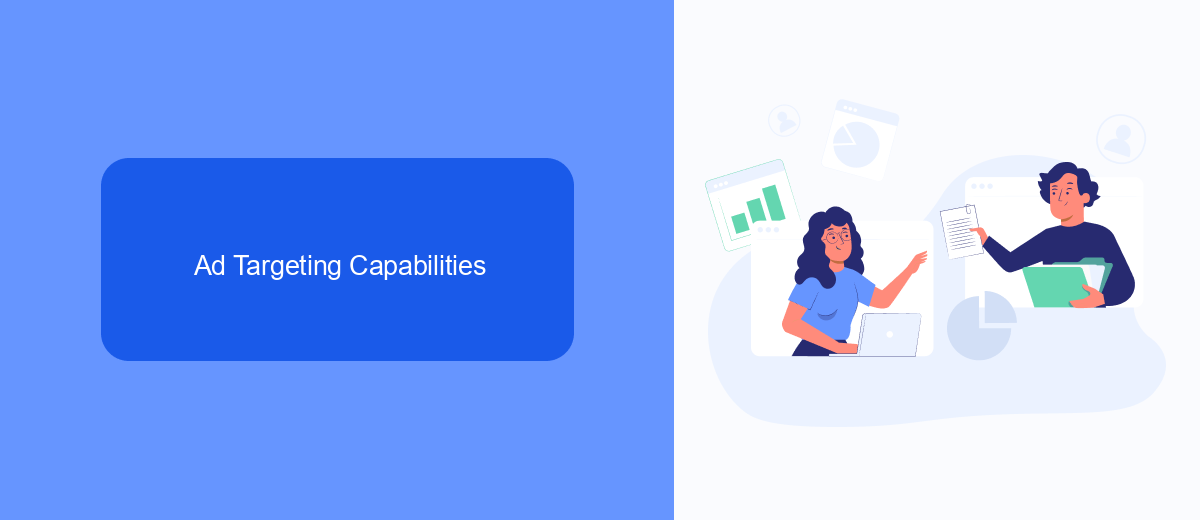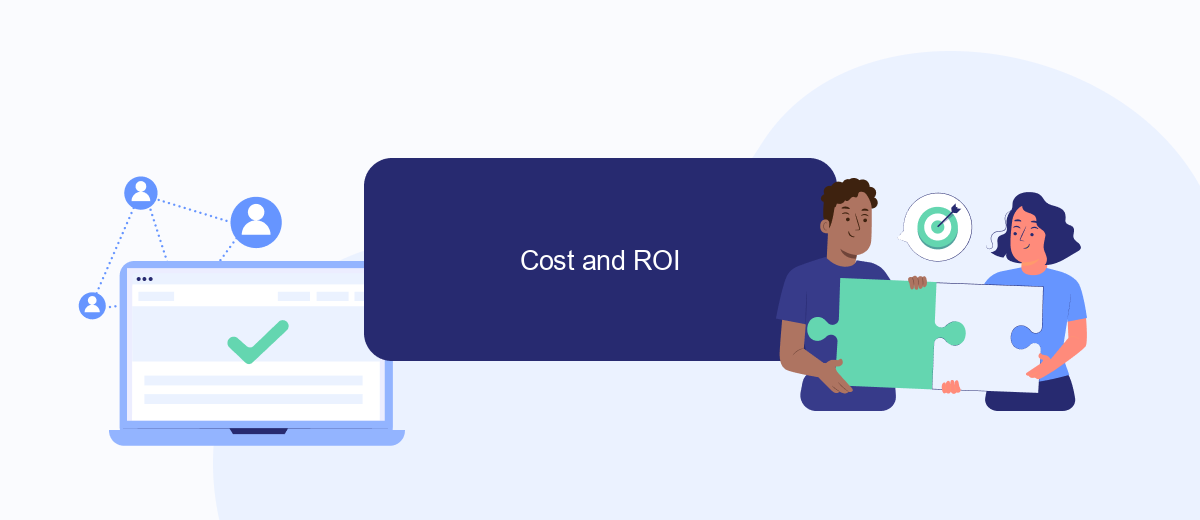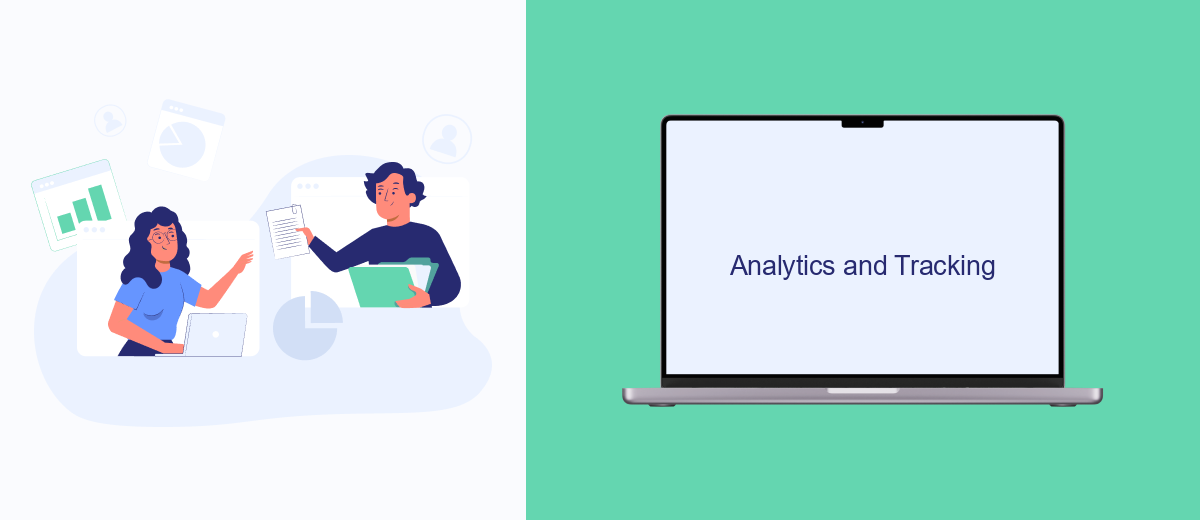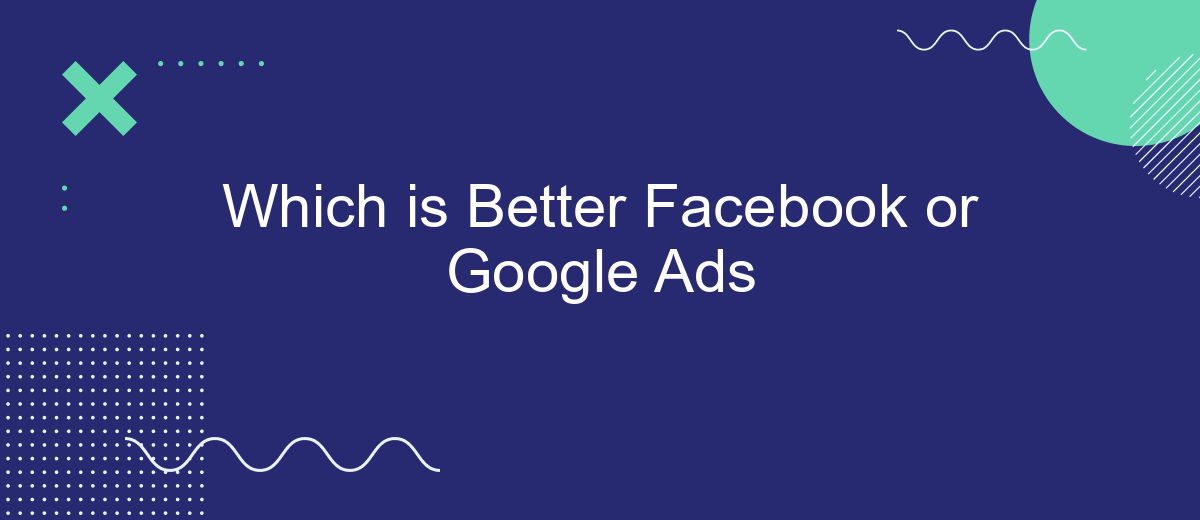In the ever-evolving landscape of digital marketing, businesses often face the dilemma of choosing between Facebook Ads and Google Ads. Each platform offers unique advantages and caters to different marketing goals. This article delves into the strengths and weaknesses of both advertising giants, helping you determine which option aligns best with your business objectives and target audience.
Platform Reach and Demographics
When considering the reach and demographics of Facebook and Google Ads, it's essential to understand the unique audience each platform attracts. Facebook boasts over 2.8 billion monthly active users, making it a powerful tool for reaching a diverse audience. Google Ads, on the other hand, taps into the vast search engine market, reaching billions of users through search results and partner sites.
- Facebook: Predominantly used by a younger audience, with a significant presence in the 18-34 age group.
- Google Ads: Reaches a broader demographic, including a higher percentage of users aged 35 and above.
- Facebook: Strong engagement with visual content, such as images and videos.
- Google Ads: Effective for targeting users with specific search intent.
Both platforms offer robust targeting options, but your choice should depend on your campaign goals and target audience. For seamless integration and campaign management, services like SaveMyLeads can be invaluable. SaveMyLeads automates lead generation and data transfer, allowing you to focus on optimizing your ad strategies for maximum reach and engagement.
Ad Targeting Capabilities

When it comes to ad targeting capabilities, both Facebook and Google Ads offer robust options, but they cater to different marketing strategies. Facebook Ads excels in demographic and interest-based targeting, allowing advertisers to reach users based on their age, gender, location, interests, and behaviors. This makes Facebook particularly effective for businesses aiming to build brand awareness and engage with a specific audience. Additionally, Facebook's Lookalike Audiences feature helps businesses find potential customers who resemble their existing customer base, further enhancing targeting precision.
On the other hand, Google Ads focuses on intent-based targeting through its Search and Display Networks. Advertisers can target users based on the keywords they search for, their browsing behavior, and the content they consume online. This makes Google Ads ideal for capturing high-intent users who are actively searching for products or services. To streamline and optimize ad campaigns, businesses can use integration services like SaveMyLeads, which automate the transfer of leads from Facebook and Google Ads to their CRM systems, ensuring a seamless and efficient lead management process.
Cost and ROI

When comparing Facebook and Google Ads, cost and return on investment (ROI) are crucial factors to consider. Both platforms offer unique pricing models and potential returns, which can vary depending on your business goals and target audience.
- Facebook Ads: Generally, Facebook Ads tend to have a lower cost per click (CPC) compared to Google Ads. The platform is ideal for businesses looking to build brand awareness and engage with a broad audience. With advanced targeting options, Facebook allows advertisers to reach specific demographics, interests, and behaviors, potentially leading to a higher ROI for social engagement campaigns.
- Google Ads: On the other hand, Google Ads often have a higher CPC but can deliver a higher ROI for direct response campaigns. This is due to the intent-driven nature of search advertising, where users are actively searching for products or services. Google Ads is particularly effective for capturing leads and driving conversions through search queries and display ads.
To optimize cost and ROI across both platforms, businesses can leverage integration services like SaveMyLeads. This tool simplifies the process of connecting ad platforms with your CRM, allowing for seamless lead management and improved tracking of advertising spend and returns. By utilizing such integrations, businesses can make data-driven decisions to maximize their advertising budget effectively.
Analytics and Tracking

When it comes to measuring the success of your advertising campaigns, both Facebook and Google Ads offer robust analytics and tracking tools. These tools provide valuable insights into how your ads are performing and where you can make improvements.
Facebook Ads Manager and Google Analytics are the primary platforms for tracking and analyzing your ad performance. They offer detailed metrics such as click-through rates, conversion rates, and cost per conversion. However, integrating these platforms with other tools can enhance your data analysis capabilities even further.
- SaveMyLeads: Automate data transfer from Facebook and Google Ads to your CRM.
- Google Tag Manager: Simplify the process of adding and updating tags for tracking conversions.
- UTM Parameters: Track the effectiveness of your campaigns by appending UTM codes to your URLs.
By leveraging these tools and integrations, you can gain a comprehensive understanding of your advertising efforts. This will enable you to make data-driven decisions, optimize your campaigns, and ultimately achieve better results.
Customer Service and Support
When it comes to customer service and support, both Facebook and Google Ads offer robust options, but there are some differences worth noting. Facebook Ads provides a comprehensive help center, community forums, and dedicated support for businesses. Additionally, Facebook offers live chat support for advertisers, which can be incredibly helpful for resolving urgent issues. Their customer service is geared towards ensuring that advertisers can efficiently run their campaigns and troubleshoot any problems that may arise.
Google Ads, on the other hand, also provides extensive support through their help center, community forums, and a variety of tutorials and guides. One standout feature of Google Ads is their phone support, which allows advertisers to speak directly with a representative. Furthermore, for those looking to integrate their advertising efforts with other services, platforms like SaveMyLeads can be invaluable. SaveMyLeads offers seamless integration solutions, enabling businesses to connect their Google Ads campaigns with various CRM systems and other tools, ensuring a smoother workflow and better data management.
FAQ
What are the main differences between Facebook Ads and Google Ads?
Which platform is better for brand awareness?
Which platform provides better ROI for e-commerce businesses?
Can I use both Facebook Ads and Google Ads together?
How can I automate and integrate my ad campaigns across both platforms?
What do you do with the data you get from Facebook lead forms? Do you send them to the manager, add them to mailing services, transfer them to the CRM system, use them to implement feedback? Automate all of these processes with the SaveMyLeads online connector. Create integrations so that new Facebook leads are automatically transferred to instant messengers, mailing services, task managers and other tools. Save yourself and your company's employees from routine work.
